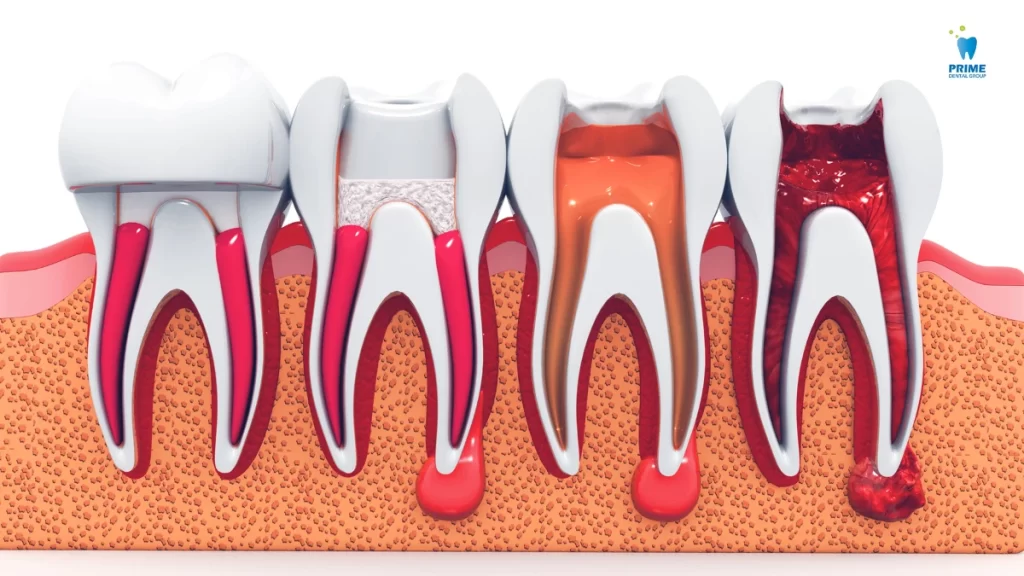Dental Specialties: What is an Endodontist and What Do They Do
Have you ever had a toothache that just wouldn’t quit? The kind that keeps you up at night and makes it hard to enjoy even your favorite foods? That kind of pain usually means something deeper is going on inside your tooth—and that’s where endodontists come in.
Endodontists are dental superheroes when it comes to saving teeth and easing pain. They focus on treating problems that affect the inside of your teeth, especially the dental pulp. And while they make up only about 2-3% of dentists, they play a huge role in keeping our natural teeth healthy and intact.
What Does an Endodontist Do?
Let’s break it down. An endodontist is a dental specialist trained to treat issues inside the tooth, like infections, decay, or trauma that affect the pulp and root canals. While your general dentist takes care of your cleanings, fillings, and checkups, an endodontist steps in when a tooth is in serious trouble.

Here’s how they’re different from general dentists:
- Extra Education: 2-3 more years of specialty training after dental school.
- More Experience: They perform up to 25 root canals a week, compared to fewer by general dentists.
- Advanced Tools: They use microscopes, 3D imaging, and special cleaning techniques for better accuracy and comfort.
The Long Journey to Becoming an Endodontist
Endodontists are some of the most highly trained dental professionals. Here’s what their education path looks like:
| Step | Duration | What They Learn |
|---|---|---|
| Bachelor’s Degree | 4 years | Science foundation (biology, chemistry) |
| Dental School | 4 years | General dentistry, oral anatomy, diagnosis |
| Specialty Training in Endodontics | 2-3 years | Root canals, dental trauma, complex diagnostics |
| Certification | Ongoing | Exams, continued education |
That’s around 10-11 years of training after high school!
When Do You Need an Endodontist?
Most people get referred to an endodontist when their general dentist spots a problem that goes beyond a basic filling. Here are some common reasons:
1. Severe Tooth Pain or Infection
If you have intense tooth sensitivity or a throbbing ache, it could be a pulp infection. Endodontists remove the infected pulp, clean the canal, and seal the tooth.
2. Dental Injuries
Trauma from a fall or accident can crack or dislodge a tooth. Endodontists use their skills to stabilize and save it whenever possible.
3. Complex Root Canals
Some teeth have unusual roots or stubborn infections. Endodontists are trained for these tougher cases.
| Condition | Symptoms | Treatment |
| Severe Infection | Throbbing pain, sensitivity | Root canal |
| Dental Trauma | Cracked, displaced teeth | Pulp therapy, restoration |
| Complex Cases | Multiple canals, retreatment | Advanced root canal, apicoectomy |
Root Canal Therapy: The Star Procedure
Root canals get a bad rap, but in the hands of an endodontist, they’re actually pretty straightforward and highly successful.
Steps of a Root Canal:
- Diagnosis: X-rays and exam to find the infection
- Access: Opening made in the tooth
- Cleaning: Remove infected pulp and clean canals
- Filling: Canals are sealed to prevent infection
- Restoration: A crown or filling completes the process
| Treatment | Cost | Recovery Time |
| Root Canal | Moderate | 1-2 visits, quick recovery |
| Extraction + Implant | Higher | Multiple visits, longer recovery |
Root canal therapy has a 90% success rate and can help your natural tooth last a lifetime with proper care.

High-Tech Tools for High-Quality Care
Endodontists use the latest dental tech to make procedures faster, more precise, and more comfortable.
Technologies They Use:
- 3D Imaging (CBCT): Gives a full view of tooth roots and surrounding structures
- Microscopes: Allow close-up views for delicate procedures
- GentleWave® System: Uses sound waves to clean canals more thoroughly
- DentalVibe®: Reduces anxiety and pain during numbing injections
These tools help endodontists diagnose problems more accurately and treat them more effectively.
Signs You Should See an Endodontist
Not sure if you need a root canal specialist? Here are some signs:
- Sharp pain when eating or biting
- Lingering sensitivity to hot or cold
- Swollen, tender gums
- Darkening or discoloration of a tooth
- A pimple-like bump on the gum (may mean an abscess)
If you notice any of these, your general dentist may refer you to an endodontist for further evaluation.
Why Saving Your Tooth Is So Important
Keeping your natural teeth is always the best choice when possible. Here’s why:
| Benefit | Explanation |
| Keeps Your Bite Strong | Natural teeth are better for chewing |
| Prevents Shifting | Keeps surrounding teeth in place |
| Saves Money | Avoids costly replacements like implants |
| Boosts Confidence | Natural teeth feel and look best |
Endodontic treatments like root canals help avoid extractions and preserve your smile.
What to Expect After a Root Canal
Recovery is usually quick and easy if you follow your dentist’s advice.

Aftercare Tips:
- Take any prescribed pain relievers as directed
- Stick to soft foods for a few days
- Avoid chewing on the treated side until a crown is placed
- Brush and floss gently around the area
- Attend all follow-up appointments
| Aspect | Detail |
| Discomfort | 2-4 days is normal |
| Eating | Soft diet recommended |
| Hygiene | Gentle brushing/flossing |
| Long-Term Success | High with proper crown and care |
Final Thoughts: Why Endodontic Care Matters
Endodontists aren’t just root canal pros—they’re partners in helping you keep your natural smile for life. Their specialized training and advanced tools make them the best choice when your tooth is at risk.
So the next time your dentist mentions a root canal or refers you to an endodontist, you can feel confident. They’re not just saving your tooth—they’re saving your smile.
FAQs About Endodontists
What is an endodontist? A dental specialist focused on treating issues inside the tooth, like pulp infections and root canal treatments.
Do root canals hurt? Not with modern techniques! Most people say it feels no worse than getting a filling.
How long does a root canal take? Most treatments take 1-2 visits and less than two hours total.
Will I need a crown afterward? Yes, usually. A crown protects the tooth and restores its strength.
Can endodontic treatment really save my tooth? Yes! With a success rate around 90%, it’s often the best way to avoid extraction.
Ready to Save Your Smile?
If you’re experiencing tooth pain or have been told you need a root canal, don’t wait. Schedule a visit with our expert team at Bellevue Prime Dental Group or Lynnwood Prime Dental Group. We’re here to help you keep your natural teeth, stay comfortable, and smile with confidence.







